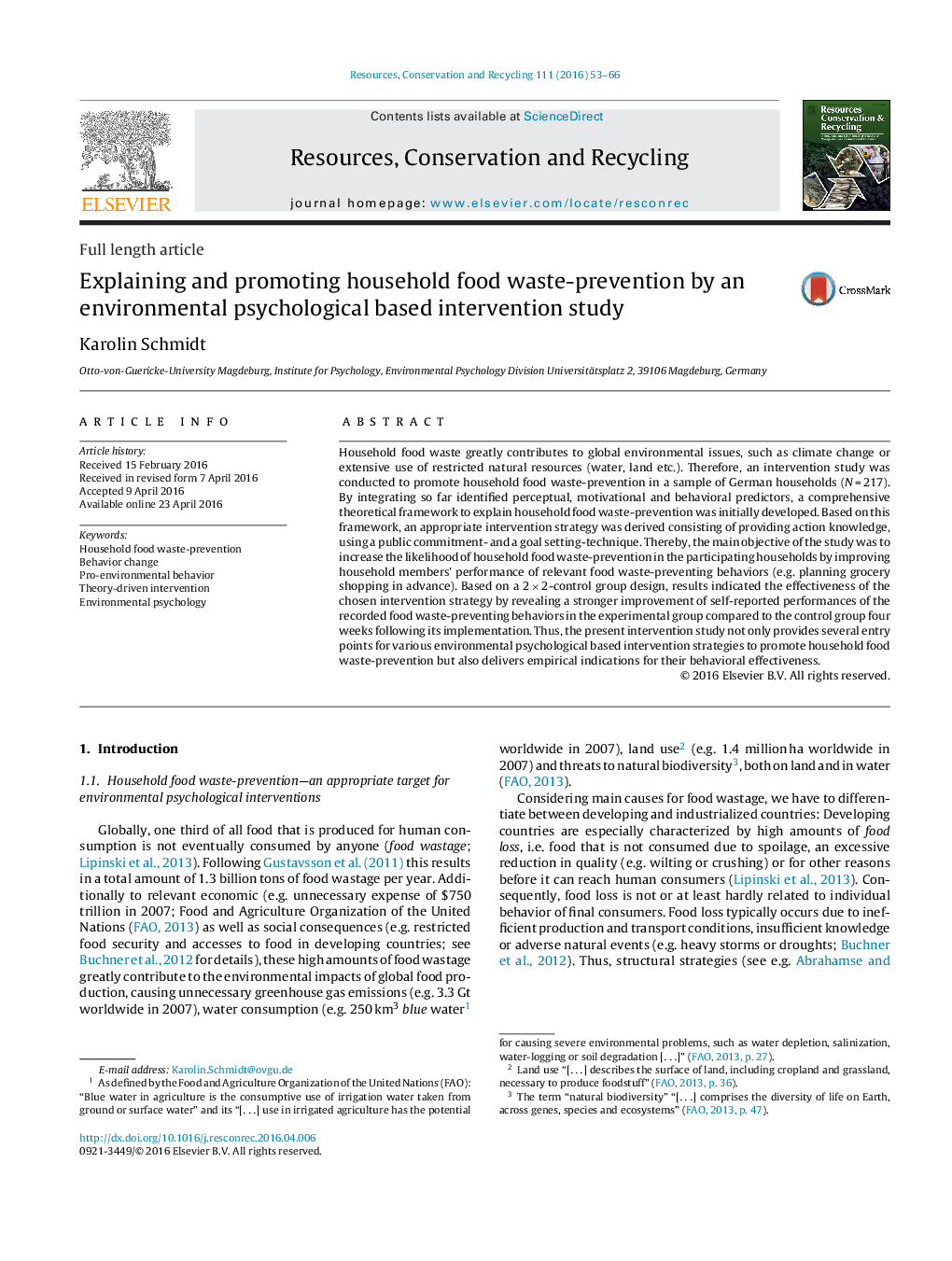| Article ID | Journal | Published Year | Pages | File Type |
|---|---|---|---|---|
| 1062695 | Resources, Conservation and Recycling | 2016 | 14 Pages |
•A comprehensive theoretical framework to explain household food waste-prevention is proposed.•Using action knowledge-provision, public commitment and goal setting can promote household food waste-prevention.•Useful insights for further food waste prevention initiatives in practice and research are derived.
Household food waste greatly contributes to global environmental issues, such as climate change or extensive use of restricted natural resources (water, land etc.). Therefore, an intervention study was conducted to promote household food waste-prevention in a sample of German households (N = 217). By integrating so far identified perceptual, motivational and behavioral predictors, a comprehensive theoretical framework to explain household food waste-prevention was initially developed. Based on this framework, an appropriate intervention strategy was derived consisting of providing action knowledge, using a public commitment- and a goal setting-technique. Thereby, the main objective of the study was to increase the likelihood of household food waste-prevention in the participating households by improving household members’ performance of relevant food waste-preventing behaviors (e.g. planning grocery shopping in advance). Based on a 2 × 2-control group design, results indicated the effectiveness of the chosen intervention strategy by revealing a stronger improvement of self-reported performances of the recorded food waste-preventing behaviors in the experimental group compared to the control group four weeks following its implementation. Thus, the present intervention study not only provides several entry points for various environmental psychological based intervention strategies to promote household food waste-prevention but also delivers empirical indications for their behavioral effectiveness.
